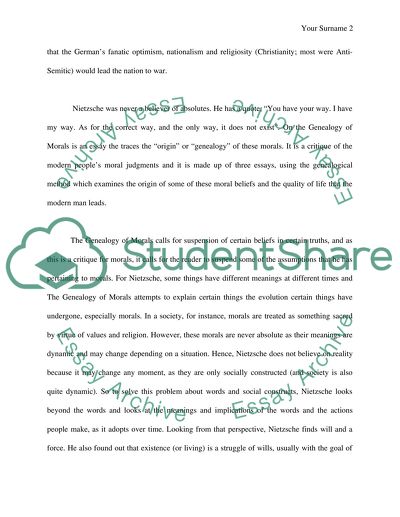Cite this document
(“Nietzsche Essay Example | Topics and Well Written Essays - 1750 words - 1”, n.d.)
Retrieved from https://studentshare.org/philosophy/1579151-nietzsche
Retrieved from https://studentshare.org/philosophy/1579151-nietzsche
(Nietzsche Essay Example | Topics and Well Written Essays - 1750 Words - 1)
https://studentshare.org/philosophy/1579151-nietzsche.
https://studentshare.org/philosophy/1579151-nietzsche.
“Nietzsche Essay Example | Topics and Well Written Essays - 1750 Words - 1”, n.d. https://studentshare.org/philosophy/1579151-nietzsche.


